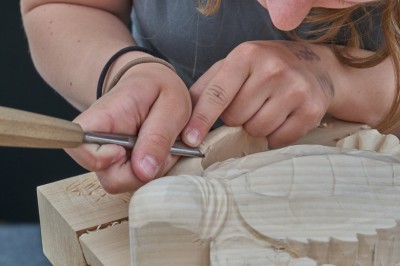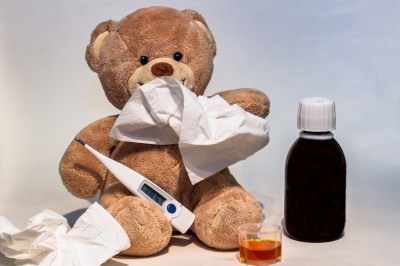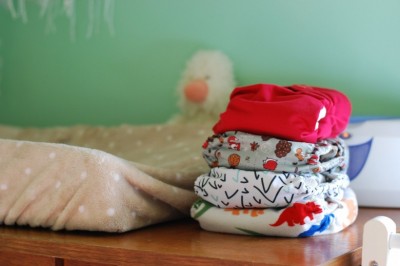Bed-Wetting: When Cures Can Be Worse than the Disease part 1
Bed-Wetting for many youngsters can be extremely traumatic-there is the potential for teasing from siblings and other family members,punishment from parents,and the possibility of their peers discovering it especially if the youngster wants to attend sleepovers. This article is divided into two parts. I feel there is useful information in both parts so I encourage you to read part 1 and 2.
Although many cases of bed-wetting can be cured using medicines,alarms,and other methods there are cases of enuresis persisting into adult years. In fact many adults suffer from this problem their whole lives. The statistics vary but anywhere from 2 to 3% of adults wet the bed. Due to the negative image associated with enuresis we should consider the possibility that these figures might be significantly higher. Just as some rape victims are reluctant to report their rape because they feel ashamed,many adult bed wetters could be reluctant to see a doctor because of the shame they are experiencing. The reason for this shame is the perception shared by a large number of people of bed-wetting as a childs disease. The adult bed wetter realizes the negative public perception of this disorder and as a result, many adults dont seek treatment and resign themselves to wearing diapers at night.
Bed-wetting it seems carries more of a stigma than other forms of incontinence. Why this is so is puzzling to me. While younger children are not immune from feeling embarrassed about this condition it seems that the older one gets the more embarrassed one feels.
Due to the stigma associated with nocturnal enuresis there is tremendous pressure with most people to cure it,and while I believe that a person should consider different methods to cure their bed-wetting and be open to trying new treatments when they become available, there are a number of factors that should be kept in mind. First of all,it can sometimes be more distressing and embarrassing going to countless doctors and specialists and having endless tests and procedures done without success. Second, there are many instances of people trying a wide variety of treatments to cure their bed-wetting without success and unfortunately there may always be circumstances in which the bed-wetting cant be resolved for whatever reason.
Third,some people might not be happy with the options available to treat their bed-wetting and prefer to wear diapers instead-as hard as it is for most people to believe there are people that prefer to use diapers to manage their bed-wetting! The reason for this is that in some cases the cure can be worse than the disease and bed-wetting and the various techniques used to cure it is no exception. For example,I have heard and read that bed-wetting alarms can disrupt a childs sleep patterns and as a result the child has difficulty both staying awake and being able to focus in class. This was discussed briefly on an incontinence forum. While I dont know if theres any validity to these claims and I am not aware of any studies corroborating this, the possibility that this might occur with some individuals should be considered. I think the prudent thing to do is to discuss the likelihood of this happening with a physician if parents are considering using this approach to treat their youngsters bed-wetting. If the parents choose to use a bed-wetting alarm they should monitor the youngsters sleep patterns and if the youngster reports any difficulties then the parents should discuss these problems with the physician. If it looks like these symptoms might be a result of using the alarm and if these problems persist or get worse over time, they should consider discontinuing use of the alarm. If enuresis alarms do disrupt a youngsters sleep patterns it could be that occurrences of this sort are not prevalent. In addition this disruption might only be temporary.
Another thing that should be kept in mind as far as bed-wetting alarms are concerned is that some children and teenagers are very deep sleepers and sleep right through the alarm. In fact Ive heard of cases where the alarm wakes up everybody else in the house except the bed wetter. Thats another reason why alarms might not be a viable option in some cases-it might wake up the other members of the household and they might not be able to get back to sleep.
Furthermore,sometimes the alarms create false positives-i.e. false alarms. This can occur if the child or teen sweats a lot at night. Also some children are frightened or embarrassed by the alarm. The reason the alarm might embarrass the child is that as mentioned it might wake up other members of the household and as a result it draws attention to the fact that the child or teenager had an accident,therefore its difficult for the youngster to be discreet about the bed-wetting. Finally,in some situations the alarms dont work for some people for whatever reason. Treatment with bed-wetting alarms can take a long time and there are cases where the children relapse and they need several attempts with the alarm to cure the enuresis. That is why this method requires the child to be highly motivated. Children without the necessary motivation might resist this type of treatment. It was reported in the summer 2006 issue of Urology Journal that some people experienced extreme discomfort during their course of alarm therapy for bed-wetting: "It has been shown that adults that use the alarm(even those who are cured) recall the treatment period as the worst time of their life." The article also has this to say regarding alarm therapy for nocturnal enuresis: "Unfortunately treatment with bed-wetting alarms has a dropout rate of 10% to 30%. To achieve optimal results,alarm therapy requires a motivated patient and family and significant commitment of effort and time. These considerations make alarm therapy a less favorable choice in enuretic adolescents and adults. Studies have shown that most enuretic adults prefer not to use alarm therapy or discontinue it very soon." Despite this its been shown that alarms have a high success rate with those individuals who have the motivation to stick with the treatment. In an article on the Dr. Spock website written by Dr. Robert Needlman it reported that 70% of children who are treated with the alarm become dry in a month or two. The Urology Journal article previously mentioned reports a success rate of more than 50%. It would seem that the prudent thing to do would be to try the alarm out for short period of time. If he or she doesnt seem motivated to stick with the regimen,it might be advisable to try the alarm at a later date. If the youngster is still resistant about using the alarm I wouldnt push the issue. As the Urology Journal article said there are cases where the people who used the alarm found it to be very stressful and their could be psychological reasons for the youngster being reluctant to use the alarm. If this is the case and other treatment options have not been successful it would be wise to have the youngster wear diapers to bed.
Medicines are another method used to treat bed-wetting but these can have unpleasant side effects with some people and there are also instances of people who in general dont like taking medicines whether due to the side effects,their fear of long term effects on the body,or both. I was also reading that there have been cases of children dying from using some medicines for bed-wetting. For example there was an article published on December 4,2007 which discussed an FDA warning about the drug DDAVP. The article mentioned that 61 seizures were reported and of these 36 were connected with the intranasal form of the drug. In addition there was a report of 2 people dying from the drug. There have also been cases of children dying from the drug Tofranil or Imipramine. It should be mentioned that these cases appear to be rare but nevertheless its important for parents to be informed about all potential risks involved with using medicines to treat their childs bed-wetting. Another thing to keep in mind concerning using medicines to treat bed-wetting is this-if the person is taking another medicine or medicines for another condition(or conditions)this combination can have unpleasant and in some cases serious side effects. This is another reason why medicines are not a viable option to treat some cases of bed-wetting. Surgery is another option to treat some cases of bed-wetting but again this can be an unpleasant choice for many people. There are instances where the persons quality of life can decline due to various complications that can arise as a result of the procedure. Before undertaking any surgical procedure its important to be well informed. Some of the things that a person should inquire about are the following:what the risks are for this particular type of surgery,what complications can occur after the surgery and whether or not these are permanent or temporary, what the procedure entails,and if there are any other ways to treat the condition. Its also good to get a second opinion.
Theres an old saying- "if all you have is a hammer,every problem looks like a nail" The people who sell bed-wetting alarms are naturally going to view their method as the best way to treat bed-wetting, the pharmaceutical company marketing a particular drug for bed-wetting is going to be biased about their method of treating bed-wetting, etc. Its important to realize this when evaluating various treatment options. Its crucial that people understand that Im not dissuading them from trying any of these methods to try to cure their bed-wetting. Im a firm believer that people should keep an open mind in terms of evaluating various treatments for any illness they might have. Im also not suggesting that any of these choices are bad or dont work for people. The fact is that they are successful with many cases of bed-wetting, but its vital to keep in mind that with some people they dont work for whatever reason-everybody is different.
The main point of this article(and I cant stress this enough) is to help people be cognizant of the fact that if theyre given a choice between several options to treat their bed-wetting they need to evaluate the pros and cons of each in a calm,objective way and not feel pressured to find a cure just because they feel embarrassed and/or pressured by what others think. Its important to recognize that all of these methods have their advantages and disadvantages and with some people the disadvantages might far outweigh the advantages. The same is true with most medical decisions in addition to other choices we make in life. A person has to weigh all these options and then ask themselves what are the best choices given their particular circumstances. For instance if it comes down to two options to deal with the bed-wetting-say wearing diapers or taking medicine and the medicine causes unpleasant side effects then the user has to ask him or herself the following question-which is worse wearing diapers to bed or taking the medicine? Personally I would think taking the medicine is worse but everyone is different. Or what if the only option to treat the bed-wetting was surgery but the risks and/or complications from the surgery were unacceptable to the person or what if the expense of the surgery was too great? Or perhaps all three?


































